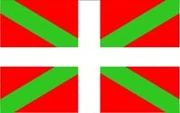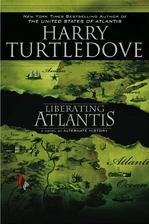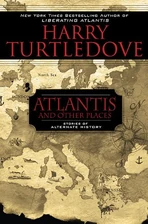
The Basques are an indigenous people who inhabit parts of north-central Spain and southwestern France. The Basque people are noted for having single eyebrows and a notoriously difficult language to learn. This language is in fact a linguistic isolate with no known relatives and is the only non-Indo-European language spoken in Western Europe.
Basque in Atlantis[]
The Basques were among the people who traveled to Atlantis in the 15th century, establishing the settlement of Gernika in the extreme south of the continent in the 1460s. The inhabitants of Gernika were the first Europeans to visit Terranova, beginning the slave-trade with the use of the copperskinned natives.
The Basque colonies became Spanish possessions after Spain unified in 1469, and remained such until purchased by the United States of Atlantis in 1822.
Basque in In High Places[]
In an alternate where Ancient Rome lost the Samnite Wars and never created an empire - and where, therefore, the Latin language and its derivatives were never introduced to the Iberian Peninsula - much of that peninsula's interior was inhabited by speakers of a language similar to Basque, while around the coasts lived Semitic-speaking peoples descended from Carthaginian settlers.
Among other places, Basque-speakers lived in the area corresponding to Madrid in other timelines. By the late 21st century, they were in transition between the tribal and feudal stages of social development, when the rogue Crosstimers appeared on the scene to establish a slave estate, enslaving some of the locals as well as importing slaves from other timelines. A Basque noble attempted to reason with the invaders but was treated with contempt. When the Basques tried to resist by force, they fought bravely but had no chance against the home timeline weapons and were repulsed with great losses.
Fortunately for these Basques, it was at this moment that Annette Klein managed to escape from the estate and alert the authorities to what was going on, and subsequently the rogues were arrested and their estate broken up. Basque slaves were released and able to return to their homes, and by the Home timeline's established policy the Basques were left to develop in their own way with only minimal outside contact - though the rogues' incursion would likely influence their mythology in later generations.
References[]
| ||||||||||||||||||||||||||||
| ||||||||||||||||




